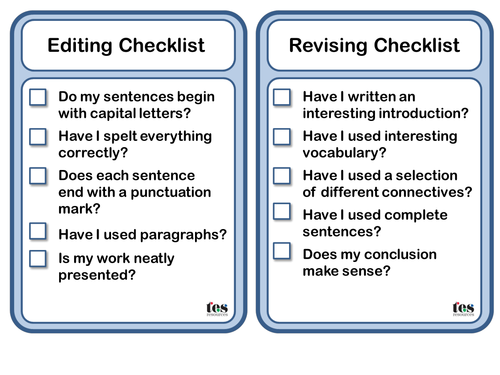Writing Assessment Tools
During the group discussion,
we decided that there are several ways writing can be assessed. As teachers, we
focus simply on what is written but not how our students understand. Twelve out
of twenty is given for a written assignment, but why has the student received
that? Traditionally, the writing was only assessed when students write and students
used a checklist or a rubric to see if the writing had the correct mechanics.
Sadly, even today with our diverse learners and their different learning
styles, some teachers only use checklists only to assess their students.
Writing can be assessed in many ways. Below are five ways
writing can be assessed:
Writer’s Workshop
The Writing Workshop is a student-centred framework for writing instruction that when students write frequently they learn to write best (Mulvahill, 2018). Writer's workshop can be effective in assessing students writing because students can receive opportunities for feedback at different stages. We as teachers can assess students writing through the Writer's Workshop through a conference, share ideas, ways to improve writing and evaluate students writing.
The Writing Workshop is a student-centred framework for writing instruction that when students write frequently they learn to write best (Mulvahill, 2018). Writer's workshop can be effective in assessing students writing because students can receive opportunities for feedback at different stages. We as teachers can assess students writing through the Writer's Workshop through a conference, share ideas, ways to improve writing and evaluate students writing.
Journals
Writing
in journals can be a powerful strategy for students to respond to literature,
gain writing fluency, dialogue in writing with another student or the teacher,
or write in the content areas (Cox,2012). A journal can be used to assess students writing. Teachers can
easily identify issues in students writing using a journal. Assessing students'
writing in journals can help teachers to plan for future instruction in
writing. We as teachers can use journals can provide teachers with insight into students writing abilities.
Portfolio
A portfolio is the collection of students' writing. Teachers can use portfolios for writing instruction to collect students writing. Students can be able to reflect their own growth as writers and self evaluate ways to make writing better.. Using portfolios can be used to help students to keep track of their progress in writing. Students can also receive teacher feedback for their writing. When learners are introduced to monitoring their progress, they become more aware of their strengths and weaknesses and how they can improve their writing (Koay,2019).
Checklists
A checklist is an assessment tool usually used to check if students have demonstrated specific criteria. Teachers can use a checklist to assess students writing to determine whether students have demonstrated the criteria in their writing. Both teacher and student can assess writing through a checklist.
Example of checklist

6 +1 traits
The 6+ 1 traits model of instruction and assessment is based on some characteristics of good writing. The 6+1 traits model uses scoring guides to identify and evaluate good writing Reading Rockets (2010). The 6+1 traits within the model are ideas, organization, voice, word choice, sentence fluency, conventions, and presentation.

A portfolio is the collection of students' writing. Teachers can use portfolios for writing instruction to collect students writing. Students can be able to reflect their own growth as writers and self evaluate ways to make writing better.. Using portfolios can be used to help students to keep track of their progress in writing. Students can also receive teacher feedback for their writing. When learners are introduced to monitoring their progress, they become more aware of their strengths and weaknesses and how they can improve their writing (Koay,2019).
Checklists
A checklist is an assessment tool usually used to check if students have demonstrated specific criteria. Teachers can use a checklist to assess students writing to determine whether students have demonstrated the criteria in their writing. Both teacher and student can assess writing through a checklist.
Example of checklist

6 +1 traits
The 6+ 1 traits model of instruction and assessment is based on some characteristics of good writing. The 6+1 traits model uses scoring guides to identify and evaluate good writing Reading Rockets (2010). The 6+1 traits within the model are ideas, organization, voice, word choice, sentence fluency, conventions, and presentation.
Literacy Log
A Literacy log is a record of student work and activities. This literacy log helps the student and teacher to keep track of students writing progress. This can be used as an assessment tool to help teachers to assess students writing based on their progress.
A Literacy log is a record of student work and activities. This literacy log helps the student and teacher to keep track of students writing progress. This can be used as an assessment tool to help teachers to assess students writing based on their progress.
Rubric
A rubric is an assessment tool that uses a set of criteria to evaluate student's performance and students work. Teachers can use a rubric to evaluate students writing. We as teachers sometimes create our own rubrics so assess students' work. We can create a rubric to assess students work and evaluating the quality of their writing.
Peer editing
Peer editing can be used as a writing assessment tool. This is an assessment where students work together in pairs or even in small groups to check each others writing process. Students can learn together, realise their own mistakes and share their ideas on writing. The teacher can become the facilitator with this assessment.

Useful websites:
https://www.scholastic.com/dodea/Module_3/resources/red_tr_c03s03_assesstool.pdf - This site outlines different writing assessment tools that can be used in the classroom.
https://www.readingrockets.org/article/writing-assessment- This site outlines and describes some writing assessment tools that can be used in the classroom.
References
A rubric is an assessment tool that uses a set of criteria to evaluate student's performance and students work. Teachers can use a rubric to evaluate students writing. We as teachers sometimes create our own rubrics so assess students' work. We can create a rubric to assess students work and evaluating the quality of their writing.
Peer editing
Peer editing can be used as a writing assessment tool. This is an assessment where students work together in pairs or even in small groups to check each others writing process. Students can learn together, realise their own mistakes and share their ideas on writing. The teacher can become the facilitator with this assessment.

Useful websites:
https://www.scholastic.com/dodea/Module_3/resources/red_tr_c03s03_assesstool.pdf - This site outlines different writing assessment tools that can be used in the classroom.
https://www.readingrockets.org/article/writing-assessment- This site outlines and describes some writing assessment tools that can be used in the classroom.
References
Cox, C. (2012). Literature Based Teaching in the
Content Areas. Thousand Oaks, CA: SAGE Publications, Inc.
Koay, J. (2019,
October 26). WHAT IS PORTFOLIO WRITING ASSESSMENT? Retrieved from Edu
Maxi: https://www.edumaxi.com/what-is-portfolio-writing-assessment/#respond
Mulvahill, E.
(2018, April 19). What Is Writing Workshop? Retrieved from We are
teachers: https://www.weareteachers.com/what-is-writing-workshop/
Reading Rockets. (2019). Writing Assessment. Retrieved from Reading Rockets: https://www.readingrockets.org/article/writing-assessment
Reading Rockets. (2019). Writing Assessment. Retrieved from Reading Rockets: https://www.readingrockets.org/article/writing-assessment
Until Next time ... Goodbye



No comments:
Post a Comment